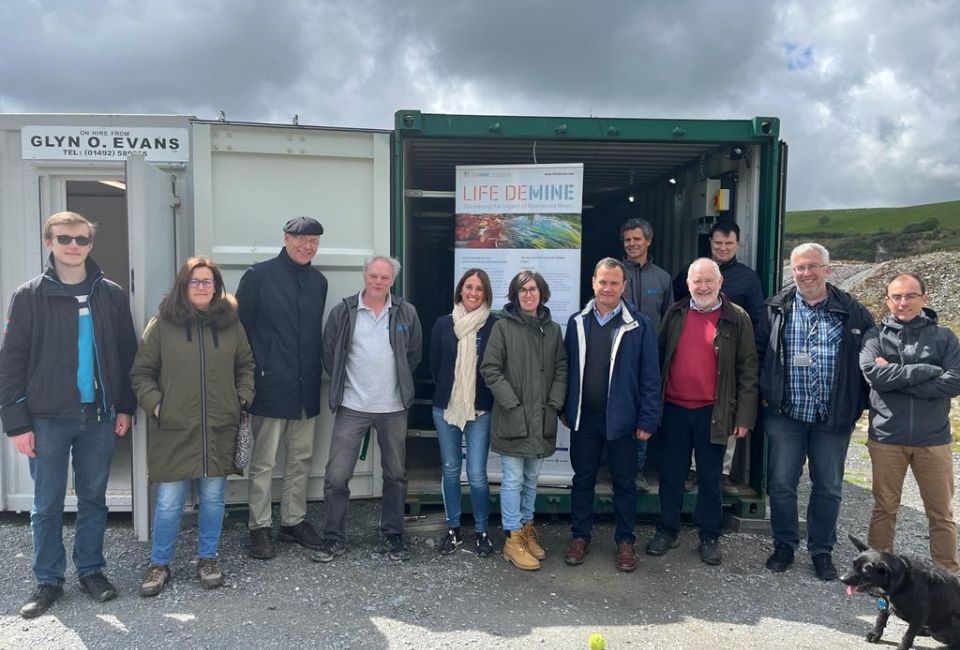The LIFE DEMINE project offers new technological solutions to mitigate the impact of abandoned mines
The project has demonstrated that the toxicity associated with metals and excess salinity can be significantly reduced

Europe currently has 3,460 abandoned mines, 73 of which are located in Spain. These disused mines generate an environmental impact on aquatic ecosystems that is little known to society, as well as potential health risks. According to studies carried out in this area, effluents from abandoned mines can contain high concentrations of heavy metals or salts, which filter through the soil and end up in rivers, causing a strong impact on biodiversity and the functioning of these ecosystems.
By combining effluent treatment technologies based on electrocoagulation and membrane treatment, the European LIFE DEMINE project has demonstrated that metal toxicity and excess salinity can be significantly reduced and, consequently, their impact on aquatic ecosystems. The novelty of the DEMINE project, led by the BETA Technological Center of the University of Vic – Central University of Catalonia (UVic-UCC), has been the optimozation of the the combination of these existing technologies and to have experimented on a pilot scale in real abandoned mines in Germany and the United Kingdom. The efficiency of the technology in removing metals and salinity has been close to 100%.
Ecotoxicological tests have confirmed the improved quality of these treated effluents with the combination of technologies relative to untreated effluents. Researchers at UVic-UCC’s CT BETA studied the responses of different aquatic organisms to mining effluents treated with the DEMINE technology compared to untreated effluents. While effluents from abandoned mines caused serious damage to the diversity and survival of algal communities or processes such as photosynthesis, organisms exposed to effluents treated with the new technologies did not show any significant response.
A solution that goes beyond technology
The scope of the DEMINE project, launched in July 2017 and completed in June 2022, has also involved the involvement of citizens and the administration. The Government of the Principality of Asturias, as a region where there is a long tradition of mining activity and where mines have been closed, has participated in the project by analyzing the suitability of implementing the new technology from a legislative and administrative point of view in abandoned mines in Spain. It has also collaborated in educational activities, with the participation of high school students from Asturian towns affected by abandoned mines. In these activities, the students were shown the impacts of effluents from abandoned mines on the quality of the water in their surroundings, and practical workshops were held, where they learned about the capacity of the new technologies developed in the DEMINE project to eliminate the environmental impact of the effluents.
The DEMINE project has not only demonstrated the technical feasibility, process efficiency and environmental benefit of the implementation of the new technological proposal for the treatment of mine effluents, but has also developed a tool that allows public agencies, regulators, managers and other key agents to know the performance and environmental benefits for applying the new technology deployed. This tool consists of a simulator in which social, ecological (such as toxicological effects or greenhouse gas emissions) or economic aspects are taken into account in order to calculate and compare the cost and benefit of scenarios in which the new technology developed in the DEMINE project is applied with scenarios in which it is not applied.
Five partners with an international outlook
The project, led by CT BETA, has also involved the Government of the Principality of Asturias, the University of Swansea, the Dresden Groundwater Research Centre and the company ELENTEC. This project has had a total budget of 2,184,632 euros and the contribution of the LIFE program of the European Union has been 1,310,477 euros.
